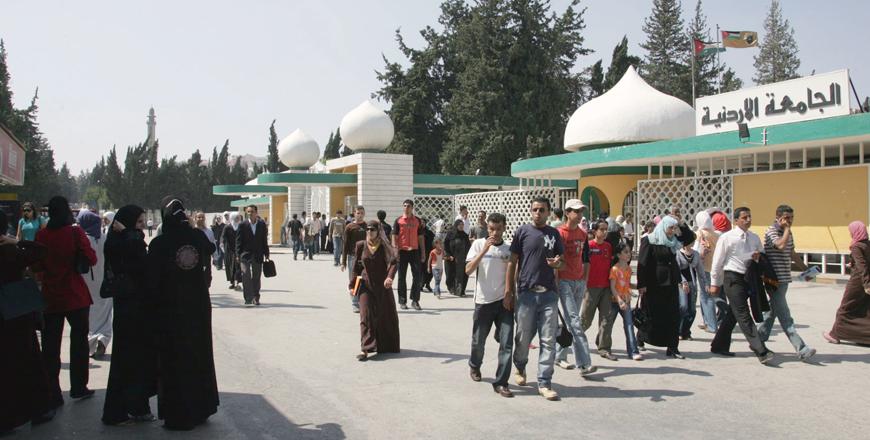You are here
‘Low Tawjihi pass rate suggests fewer applications to private universities’
By Khetam Malkawi - Aug 07,2014 - Last updated at Aug 07,2014
AMMAN — Fewer students are expected to apply to the Kingdom’s private universities this academic year, due to the low pass rate in the General Secondary Certificate Examination (Tawjihi) summer session.
According to official figures, 28,362 of those who passed the Tawjihi exam are eligible to apply to the Kingdom’s public universities as their scores are 65 per cent and above, which is the minimum admission rate.
Ghalib Hourani, head of the Unified Admission Committee at the Higher Education Ministry, said the number of seats allocated for newcomers at public universities for the 2014-2015 academic year is less than the number of those who passed the exam.
According to previous remarks by ministry officials, 25,822 seats are allocated for this year, but this number might be decreased.
A ministry document obtained by The Jordan Times indicated that the proposed number of seats allocated for public universities this year is 33,012, which is higher than the number of students eligible to join these institutions.
These seats will be distributed to nine of the 10 public universities across the Kingdom, as admission to the German-Jordanian University is through the university itself.
Last year, more than 42,000 students were accepted at public universities due to the high pass rate (56.3 per cent compared with 40 per cent this year).
As a result, the country’s private universities are concerned about their sustainability and have called on the Education Ministry to hold the “make-up test” for students who failed the Tawjihi exam in September instead of waiting until the winter session so they can enrol in university this academic year.
“Some students need less than one mark to pass the exam,” Marwan Kamal, president of the private Philadelphia University, told The Jordan Times.
He said private universities are not calling for reducing the minimum admission rate as they do not want to risk the quality of higher education outcomes, but wish to ensure that they have enough students to remain open.
They are also calling for reducing the number of students accepted in the parallel programme, which will encourage more to join private universities and institutes instead, according to Kamal.
Public universities are accepting around 19,000 students this year in the parallel programme, whose tuition fees are higher than regular programmes, and vary from one university to another.
Students who have Tawjihi grades that do not qualify them to study specific subjects at public universities have the choice to apply through this programme.
If no measures are adopted to ensure the sustainability of private universities, some employees and academics will be laid off, Kamal warned.
“These are national institutes and will be affected,” he noted.
Hourani told The Jordan Times that there is no intention to lower the admission rates in public and private institutions, noting that this semester’s Tawjihi results reflect the actual performance of students.
“Cheating was controlled this year, and the correction of exam papers was more accurate,” he said.
University of Jordan President Ekhleif Tarawneh also noted that he is against reducing the minimum grade for university admission.
However, in a phone call with The Jordan Times, he proposed redistributing seats allocated in specific subjects, calling for increasing the number of seats for specialties in demand in the job market and reducing the number of students accepted in other subjects.
Related Articles
AMMAN — The Higher Education Council (HEC) on Sunday decided to freeze a decision it adopted last month to raise the minimum admission rates
AMMAN — The Unified Admissions Committee will begin receiving applications to public universities on Wednesday, August 5 through Thursday, A
AMMAN — A total of 28,275 seats will be available for Tawjihi students for the 2015-2016 academic year at the Kingdom’s public universities,















